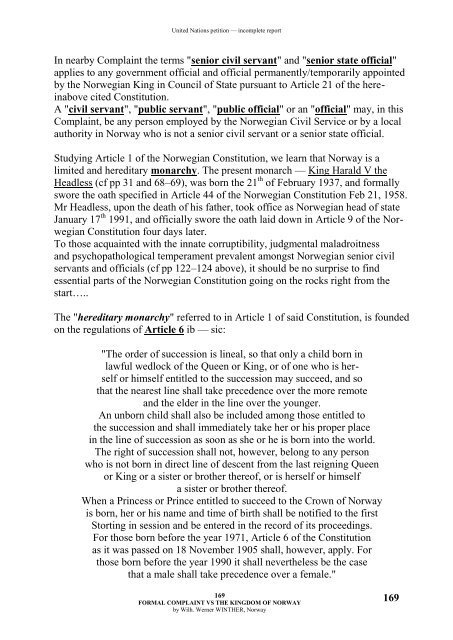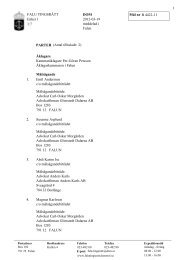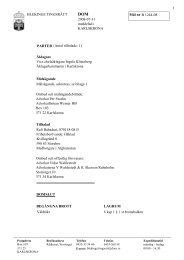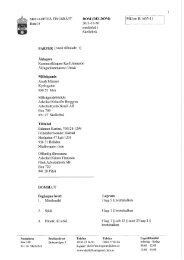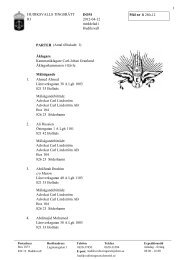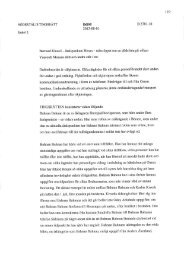FORMAL COMPLAINT - Sweden Confidential
FORMAL COMPLAINT - Sweden Confidential
FORMAL COMPLAINT - Sweden Confidential
Create successful ePaper yourself
Turn your PDF publications into a flip-book with our unique Google optimized e-Paper software.
United Nations petition — incomplete report<br />
In nearby Complaint the terms "senior civil servant" and "senior state official"<br />
applies to any government official and official permanently/temporarily appointed<br />
by the Norwegian King in Council of State pursuant to Article 21 of the here-<br />
inabove cited Constitution.<br />
A "civil servant", "public servant", "public official" or an "official" may, in this<br />
Complaint, be any person employed by the Norwegian Civil Service or by a local<br />
authority in Norway who is not a senior civil servant or a senior state official.<br />
Studying Article 1 of the Norwegian Constitution, we learn that Norway is a<br />
limited and hereditary monarchy. The present monarch — King Harald V the<br />
Headless (cf pp 31 and 68–69), was born the 21 th of February 1937, and formally<br />
swore the oath specified in Article 44 of the Norwegian Constitution Feb 21, 1958.<br />
Mr Headless, upon the death of his father, took office as Norwegian head of state<br />
January 17 th 1991, and officially swore the oath laid down in Article 9 of the Nor-<br />
wegian Constitution four days later.<br />
To those acquainted with the innate corruptibility, judgmental maladroitness<br />
and psychopathological temperament prevalent amongst Norwegian senior civil<br />
servants and officials (cf pp 122–124 above), it should be no surprise to find<br />
essential parts of the Norwegian Constitution going on the rocks right from the<br />
start…..<br />
The "hereditary monarchy" referred to in Article 1 of said Constitution, is founded<br />
on the regulations of Article 6 ib — sic:<br />
"The order of succession is lineal, so that only a child born in<br />
lawful wedlock of the Queen or King, or of one who is her-<br />
self or himself entitled to the succession may succeed, and so<br />
that the nearest line shall take precedence over the more remote<br />
and the elder in the line over the younger.<br />
An unborn child shall also be included among those entitled to<br />
the succession and shall immediately take her or his proper place<br />
in the line of succession as soon as she or he is born into the world.<br />
The right of succession shall not, however, belong to any person<br />
who is not born in direct line of descent from the last reigning Queen<br />
or King or a sister or brother thereof, or is herself or himself<br />
a sister or brother thereof.<br />
When a Princess or Prince entitled to succeed to the Crown of Norway<br />
is born, her or his name and time of birth shall be notified to the first<br />
Storting in session and be entered in the record of its proceedings.<br />
For those born before the year 1971, Article 6 of the Constitution<br />
as it was passed on 18 November 1905 shall, however, apply. For<br />
those born before the year 1990 it shall nevertheless be the case<br />
that a male shall take precedence over a female."<br />
169<br />
<strong>FORMAL</strong> <strong>COMPLAINT</strong> VS THE KINGDOM OF NORWAY<br />
by Wilh. Werner WINTHER, Norway<br />
169


